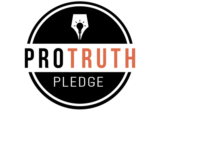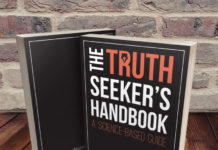
“Pursue your passion.” That’s the way to find meaning in your work, right?
Well, “pursue your passion” is the typical phrase thrown around when people talk about finding meaning in one’s work. And that’s not bad advice. Pursuing your passion is one great way of finding meaning and happiness in your work. I did so myself when I decided to become a professor and later the President of Intentional Insights.
Helping people reach their goals using science-based strategies is incredibly motivating for me. I get shivers of pleasure when I get emails from people thanking me for improving their lives. I’m so tempted to stay up long into the night to make more articles and videos to help spread such messages, energized by the vision of how much better the world would be and how much happier people would be with these tools. It’s better than coffee!
So are you telling me I can’t find meaning in work that does not match my true passion?
No, not at all! The research shows that you actually can make pretty much any work significantly more meaningful. Now that should put a smile on your face!

Studies find that your mental and physical well-being depend on having a rich sense of purpose and meaning in life, so it’s wise to make your work meaningful. I’ll cover one strategy on how to do that here, and two in a subsequent article on this topic.
Before diving into the strategies, let me clarify that I use the term “work” to refer to any area in which you get paid to bring value to others. For example, the government supports schools because students bring value by becoming educated to make a better society for us all. House-husbands and house-wives bring value by taking care of the home, and are supported by their partners. At Intentional Insights, we create blogs, videos, apps, online classes, books, most available for free, with those who value these products being out there volunteering or offering donations to our nonprofit.
Ok, so I’d like to make my work more meaningful – what’s the first strategy?
First, think about the connection of your everyday work tasks to your personal long-term goals at regular intervals. Being the President of Intentional Insights helps me accomplish my long-term goal of improving the world and helping people have better lives. But that higher purpose tends to be lost in the everyday tasks of writing articles, fundraising, answering emails, etc.
So every week on Saturday afternoon, I sit down to review what I did that week. I think about how it helped bring about the kind of world where I want to live. I imagine that world, visualizing all the details of how much better off other people are, how they make wiser decisions, how much less suffering and more joy there is in the world. I let myself feel how good it would be to live in that world, and how great it is that my daily work activities help bring that world into reality. I then write my feelings and thoughts in my journal. I want to make sure I have a record I can refer back to any time I get lost in the everyday business of my work activities. Research shows journaling is a great strategy to gain a higher sense of meaning and purpose in life.. I also encourage others at Intentional Insights to connect their long-term goals to their daily tasks, and to create an organizational culture that facilitates such meaning-making activities.
While improving people’s lives happens to be my goal, you should think about your own goals. Maybe you think, “I only do my job for the paycheck.” Try to sit down at systematic intervals and think about what your paycheck does for you. Does the money help you accomplish your goal of having financial stability and security? Does it help you have the kind of lifestyle you want? Does it help you support your family? Visualize the specific things that the money does for you. Imagine that world thoroughly, and feel all the positive emotions you get from that world. Then, write down your feelings and thoughts, and refer back to them whenever you’re feeling like you need to recall the reasons you’re doing what you’re doing.
So what’s the take-away here?
The take-away is that you work for yourself, not anyone else. You do what you do for your own reasons and goals. Always remember that and be intentional. Show agency in getting what you want from your work, including a sense of meaning and purpose in life.
Consider sharing this article with your co-workers and/or supervisor if you think they would benefit from reading it, and also if you would benefit from them having read it.
Questions to Consider:
- Say your friend asked you how to find meaning and purpose in their workplace. What advice might you offer?
- Will reading this article lead you to take specific steps to gain greater meaning and purpose from your work? If so, what are those steps? What might be the barriers to such steps, and how will you deal with such barriers?
- What kind of benefit have you gained from reading this article and how will your life be better off, if in any way?
P.S. For additional resources, check out this workbook with exercises on finding meaning and purpose using science-based strategies; this free science-based web app to evaluate your current sense of meaning and purpose; this free online class on finding meaning and purpose using science; this free video workshop with a certified credit option on building a sense of meaning and purpose in the workplace; and the wide variety of other resources on meaning and purpose available at Intentional Insights.




